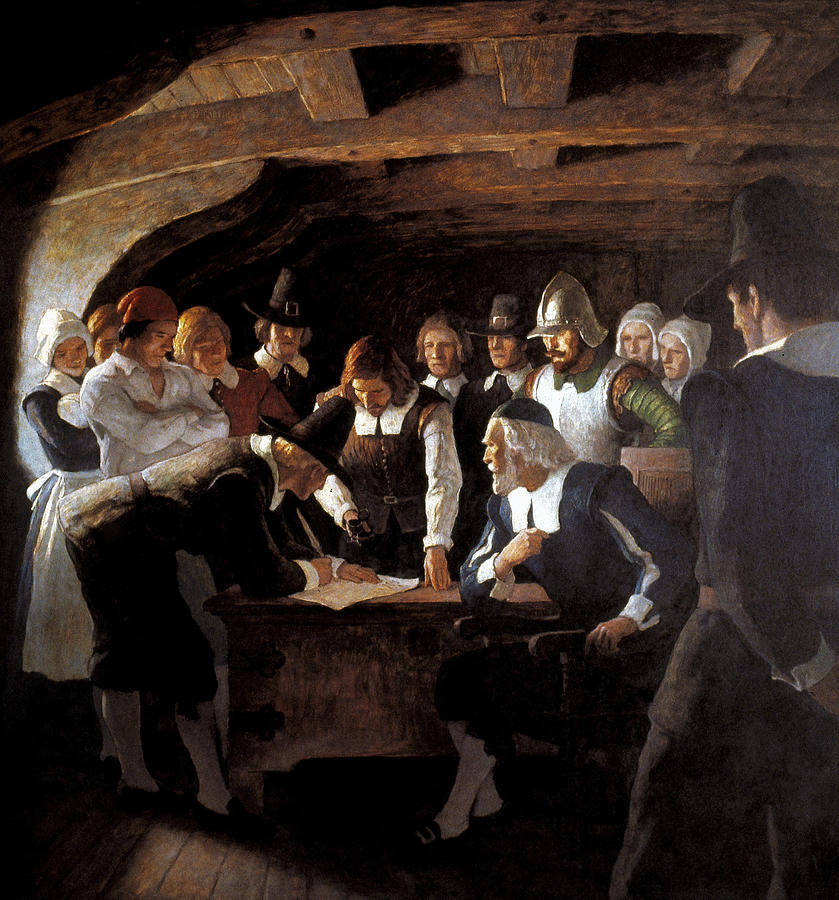What is your personal code of honor? Just what do you consider dishonorable or
disgraceful in personal conduct? It seems to me that we had all grown rather careless
in holding ourselves to any code of honor and just a little ashamed
of admitting we had such a standard.
At best, our rules of life were becoming a little flexible, and we had rather
a contemptuous memory of the knights of King Arthur's roundtable, who
fought so often for honor and still at times forgot it so completely,
while we pitied the Pilgrim Fathers for their stern inflexibility
in what they considered the right way of life.
Just now, while such mighty forces of right and wrong are contending in the world,
we are overhauling our mental processes a little and finding out some curious things
about ourselves. We can all think of examples of different ideas of what is dishonorable.
There are persons who strictly fulfill their given word. To them, it would be a disgrace
not to do as they agree, not to keep a promise, while others give a promise easily
and break their word with even greater ease.
Some persons have a high regard for truth and would feel themselves disgraced
if they told a lie, while others prefer a lie even though the truth were easier.
There are persons who have no scruples to prevent them from eavesdropping,
reading letters not intended for them, or any manner of prying into other persons'
private affairs, and to others the doing of such things is, in a manner, horrifying.
There are scandalmongers who are so eager to find and scatter to the four winds
a bit of unsavory gossip that they are actually guilty in their own souls of the slips
in virtue that they imagine in others, and, contrasting with these, are people so
pure minded that they would think themselves disgraced if they
entertained in their thoughts such idle gossip.
I know a woman whose standard of honor demands only, "The greatest good
to the greatest number, including myself." The difficulty with this is that a
finite mind can scarcely know what is good for other persons or even one's self.
Another woman's code of honor is to be fair, to always give the "square deal"
to the other person, and this is very difficult to do because the judgment
is so likely to be partial.
There is a peculiar thing about people who hold all these differing ideas
of what they will allow themselves to do. We seldom wish to live up to the
high standard to which we hold the other fellow. The person who will
not keep his word becomes very angry if a promise to him is broken.
Those who have no regard for the truth in what they say expect that others
will be truthful when talking to them. People who pry into affairs which are
none of their business consider the same actions disgraceful in others, and
gossips think that they should be exempt from the treatment they give
to other people. I never knew it to fail, and it is very amusing at times
to listen to the condemnation of others' actions by one who is even
more guilty of the same thing.
It does one good to adhere strictly to a rule of conduct if that rule is
what it should be. Just the exercise of the will in refusing to follow the
desires which do not conform to the standard set is strengthening to the
character, while the determination to do the thing demanded by that
standard, and the doing of it, however difficult, is an exercise for the
strengthening of the willpower, which is far better than anything
recommended for that purpose by books.
If you doubt that it pays in cash and other material advantages to
have a high code of honor and live up to it, just notice the plight of the
German government. At the beginning of the war, they threw away
their honor, broke their pledged word, and proclaimed to the world
that their written agreements were mere scraps of paper.
Now when they ask for a conference to discuss a "peace by agreement"
the allies reply, in effect, "but an agreement with you would in no sense
be binding upon you. We cannot trust again to your word of honor
since your signed pledge is a 'mere scrap of paper'
and your verbal promises even less."
It is plain, then, that nations are judged by their standards of honor
and treated accordingly; and it is the same with individuals.
We judge them by their code of honor, and the way they live up to it.
It is impossible to hold two standards-one for others-for what is
dishonorable in them would be the same for us, and that seems,
in the end, to be the only sure test, embracing and covering
all the rest, the highest code of honor yet voiced:
"Whatsoever ye would that men should do to you, do ye even so to them!"
"Our Code Of Honor"
(October 1918)
Laura Ingalls Wilder
(1867-1957)
Prolific American writer
Author of the "Little House"
series of books.
Essay taken from the book,
Little House In The Ozarks
A Laura Ingalls Wilder Sampler
The Rediscovered Writings
By Laura Ingalls Wilder
Edited by Stephen W. Hines
(1991)
Guideposts Edition



No comments:
Post a Comment